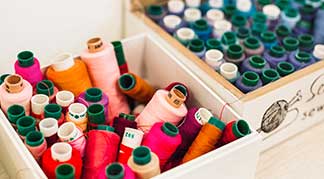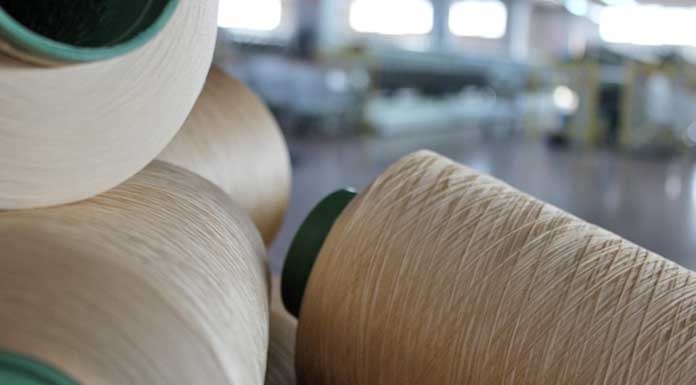
Textile and ready-to-wear industry manufacturers once again face off against each other. While the textile industry is supporting the 5-8% additional customs tax on imported yarn, the apparel industry reacts against.
With the Presidential Decree No. 651 annexed to the import regime decision published in the Official Gazette numbered 30657 dated January 16, 2019, a new regulation on yarn imports was made. According to this decree; a customs tariff of 5 to 8% was imposed on imported cotton yarn and synthetic yarns from EU and non-Turkish origin. Cotton yarn, synthetic filament yarns, yarns from synthetic staple fibers and yarns from artificial staple fibers are affected by this additional tax. Especially ready-to-wear and apparel industry reacted to this development.
Istanbul Textile and Raw Materials Exporters’ Association (İTHİB) President Ahmet Öksüz said in a statement that the domestic yarn industry is faced with unfair competition pressure from imports. Öksüz stated that an important step was taken for the textile and raw materials industry with the decision of additional customs duty on imported yarn. He recalled that yarn imports amounted to 1.3 billion dollars a year. In 2008, Öksüz mentioned that many textile and ready-to-wear products was protected with additional customs duty up to 30% and that yarn products remained out of this protection. Öksüz, who thanked the decision makers for to the additional customs duties, explained that these measures are still insufficient for the industry and they expect support.
Ready-to-wear exports will be adversely affected by the additional customs tax!
Mustafa Gültepe, President of the Istanbul Apparel Exporters’ Association (İHKİB), said they were surprised to see the additional customs tax on the imported yarn as he underlined that these additional customs tax will increase their costs and affect their global competitive power negatively. Indicating that ready-to-wear industry consists of small and medium-sized enterprises (SMEs) mostly, Gültepe has announced that a total of 35 thousand ready-to-wear companies in 81 provinces are manufacturing in Turkey, in which 18 thousand of them are exporters.
Advocating that this measure was taken at the request of mostly integrated companies with a few yarn companies; Gültepe said that this development further reduced the mobility of ready-to-wear companies; which are already trying to keep up with the difficult conditions. Gültepe; “These measures not only affect ready-to-wear, but also many other industries such as fabrics, home textiles, furniture and carpets. Despite such widespread influence, we regret the positive discrimination for a small number of yarn companies.”
Gültepe stated that 71% of the industry’s 17.6 billion dollar exports were made to the EU market; and they experienced market losses due to the increase in production costs. Gültepe continued as follows; “While there is this reality in place, additional customs taxes on raw materials will absolutely affect our exports negatively. These measures, by raising costs, discourages investment and production in our country. Several industrialists are shifting their production to the cost-effective neighbouring countries”. Gültepe reminded that imports of yarn have decreased by 25-50% since July 2018 due to high levels of exchange rate; and continued saying additional customs taxes came at a time when imports were low.
Negative reflection to the market
Denizli Chamber of Industry Chairman Müjdat Keçeci said in a statement with the additional customs tax will be reflected negatively on the market. Keçeci said; “About 80% of our country’s cotton yarn imports are realized from countries with customs duties. This increase will not affect our exporters due to the non-payment of taxes on imports made within the scope of inward processing; but will be reflected in cost increase to our companies producing domestically. With increasing energy and labor costs; textile companies competing in heavy conditions will have to reflect this increase in costs on their prices.”
Keçeci stated that they made great sacrifices for the fight against inflation; and added that textile manufacturers from Denizli were expecting the same rate of discounts; as domestic yarn manufacturers.


